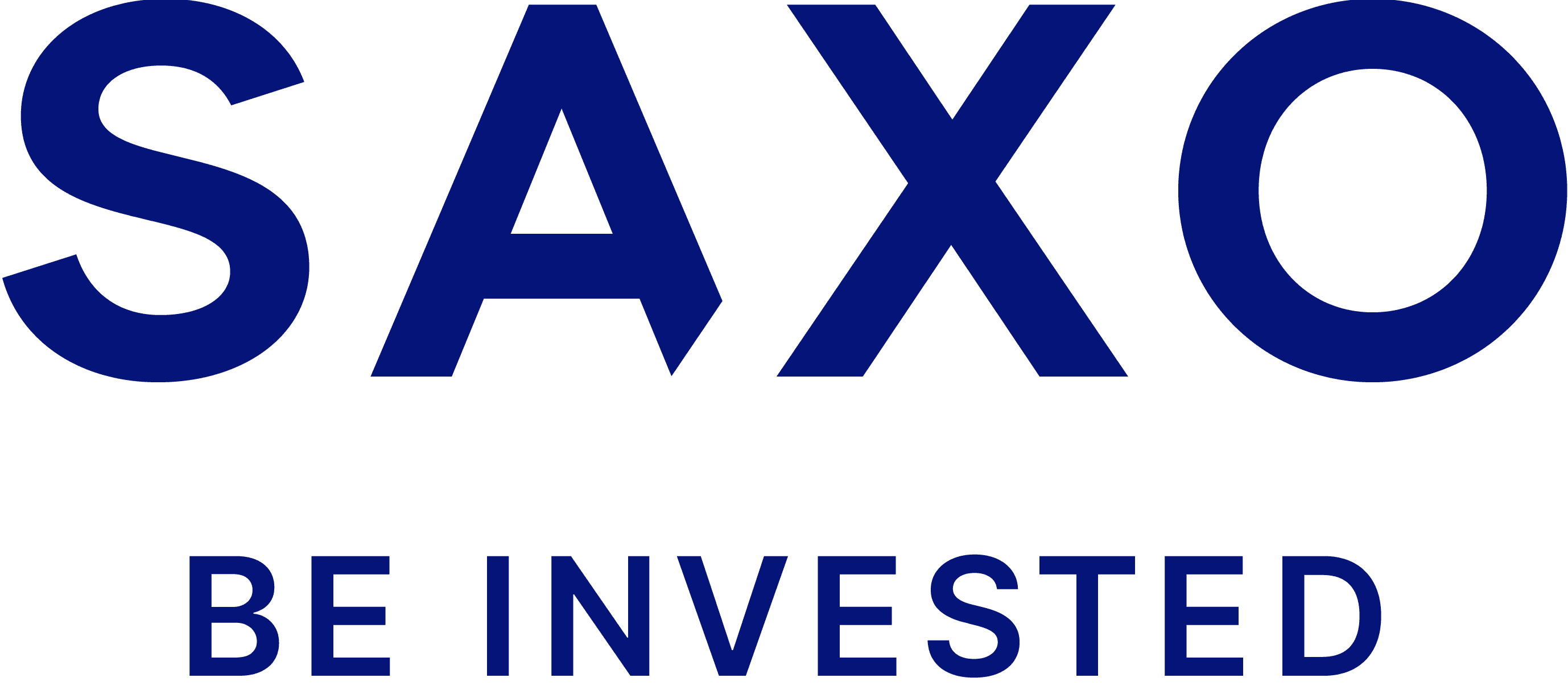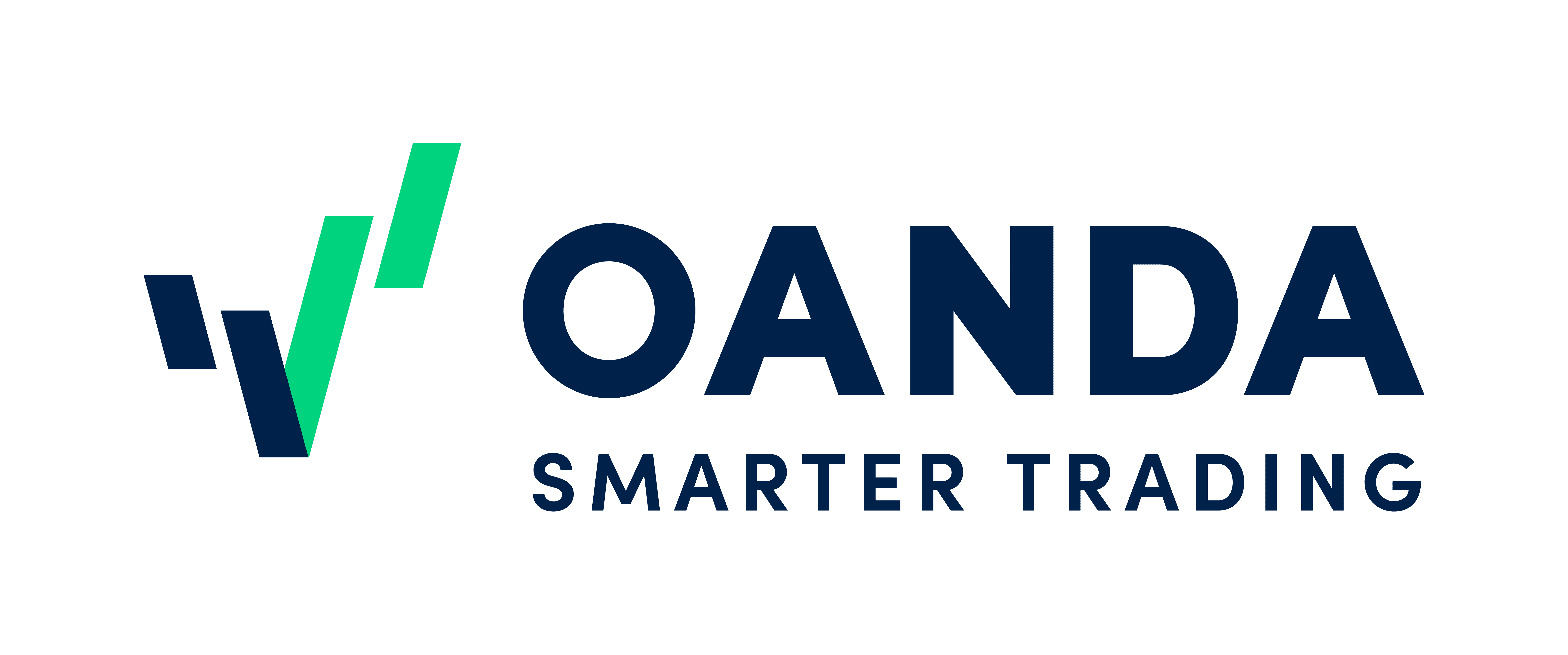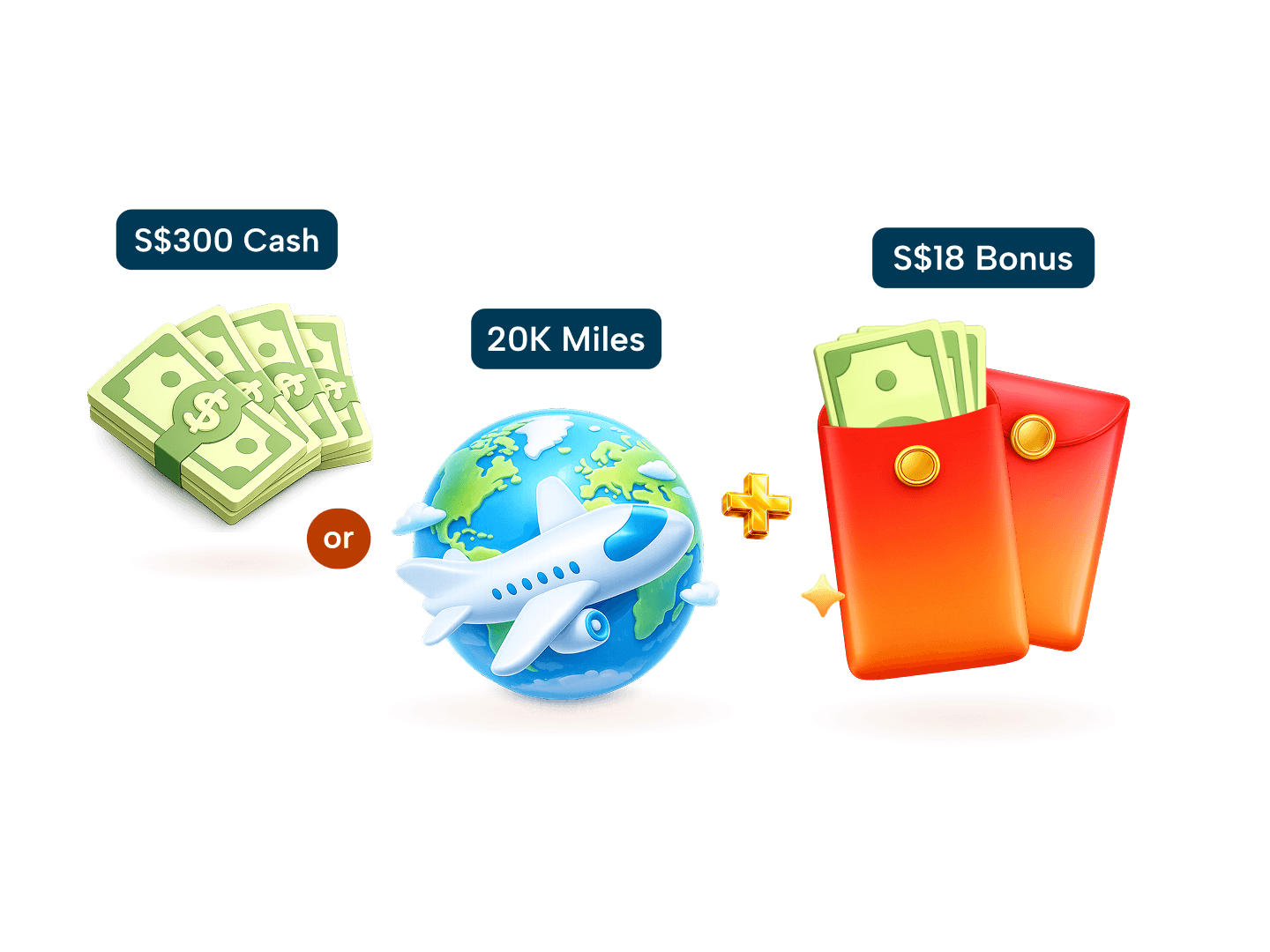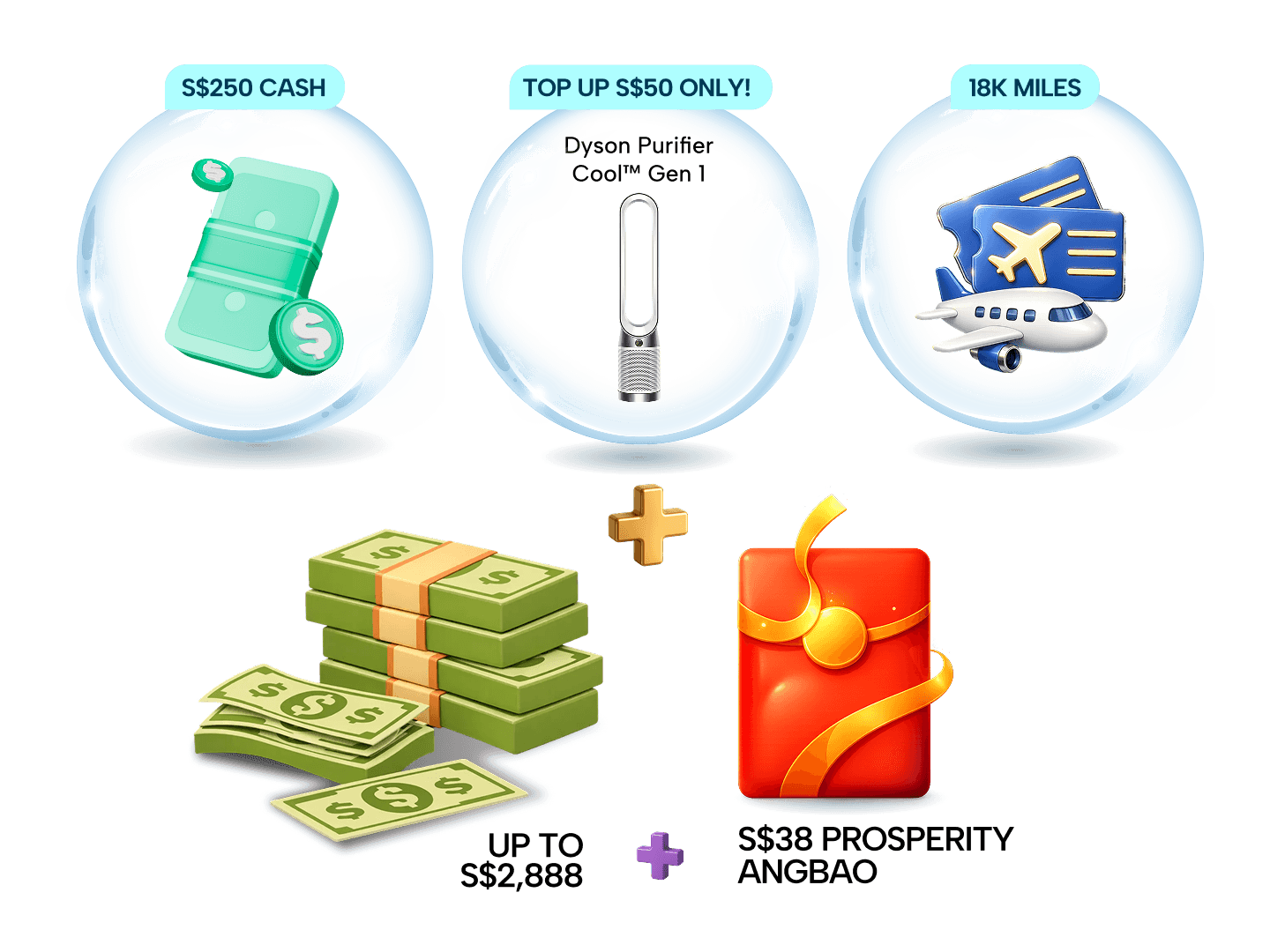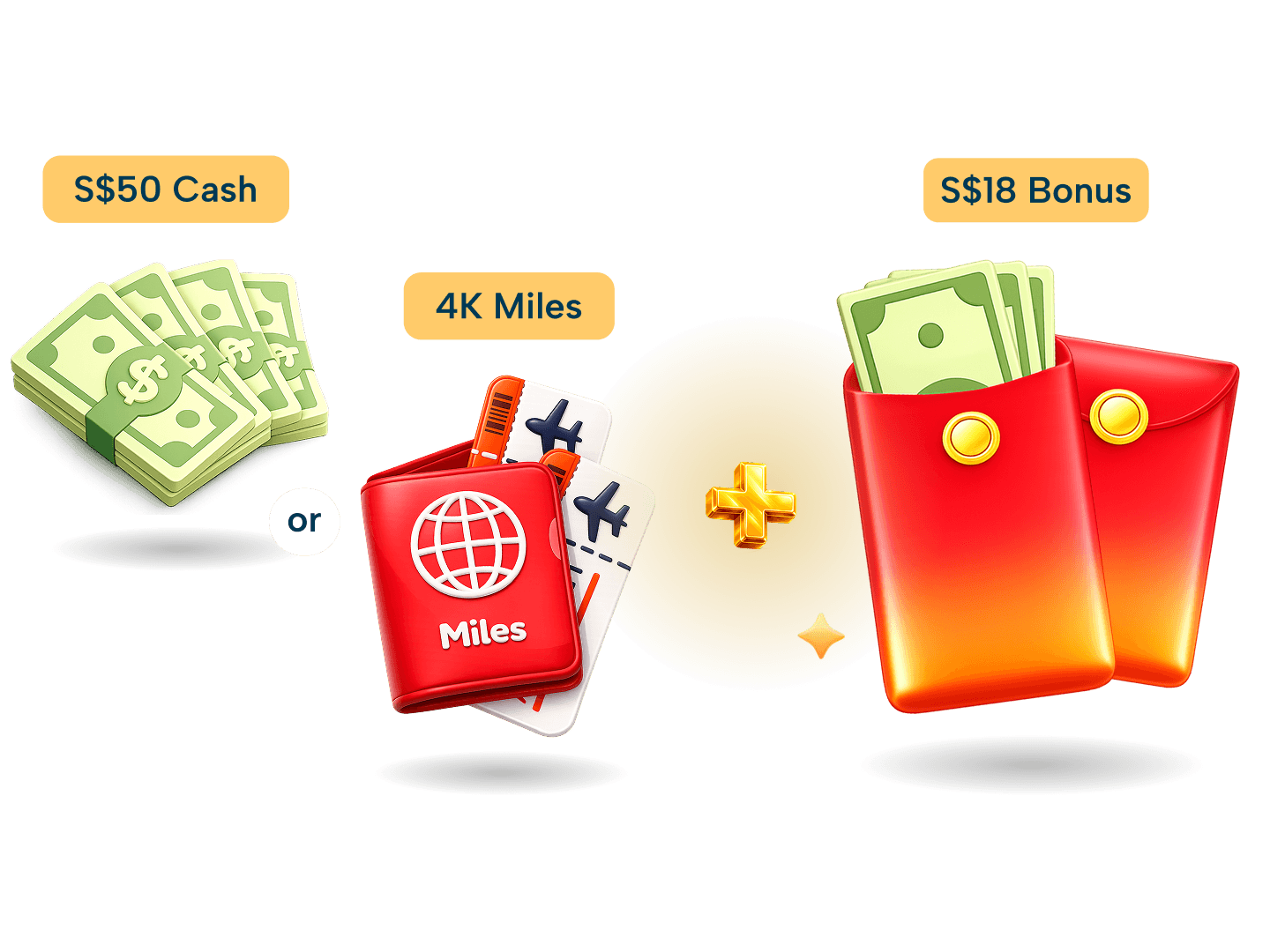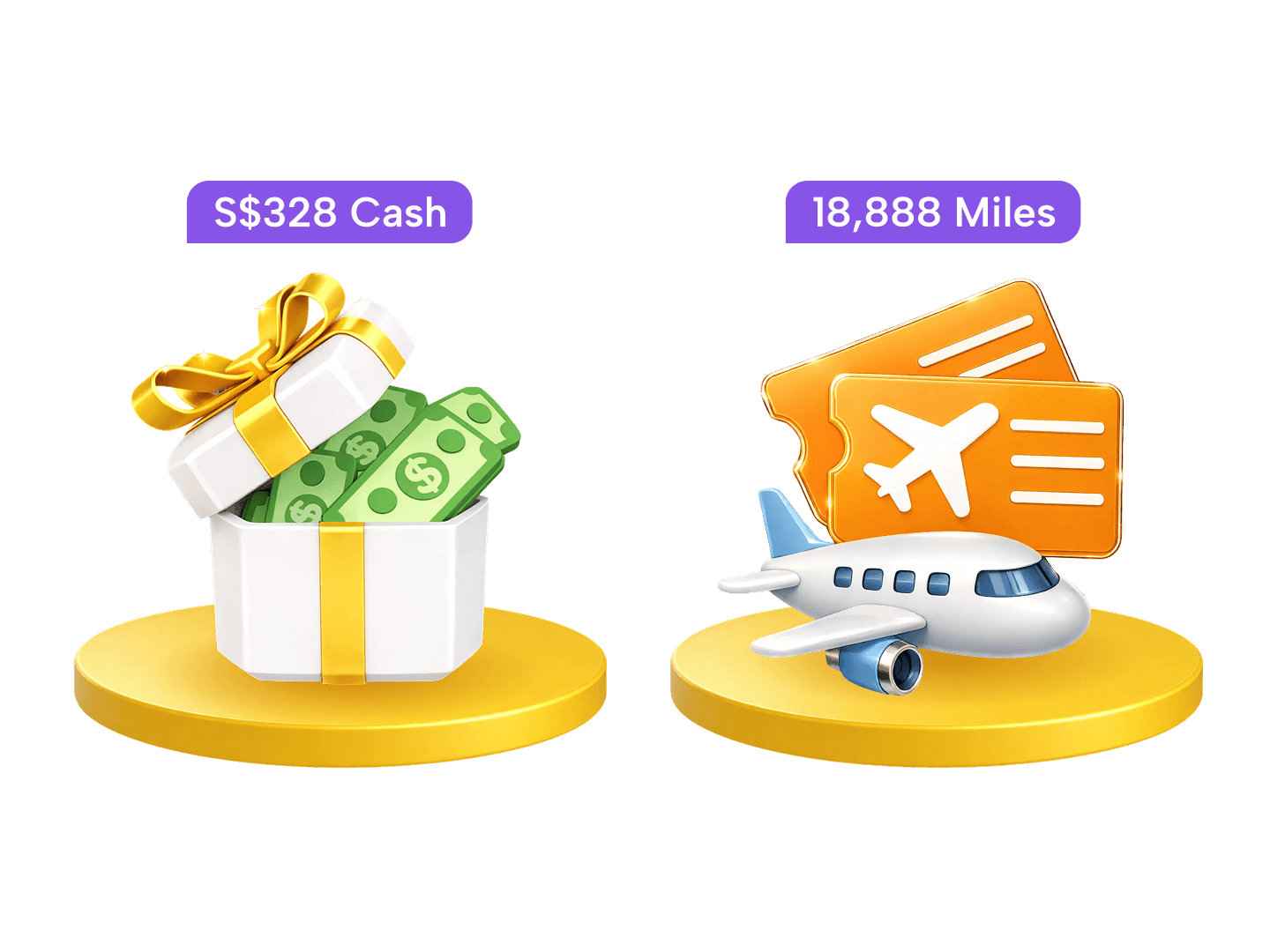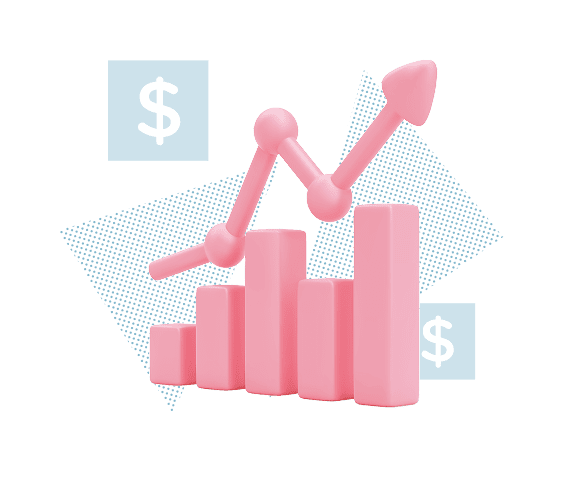Written bySingSaver Team
Team
The information on this page is for educational and informational purposes only and should not be considered financial or investment advice. While we review and compare financial products to help you find the best options, we do not provide personalised recommendations or investment advisory services. Always do your own research or consult a licensed financial professional before making any financial decisions.
Here are some of the best CFD brokers in Singapore offering low-cost investing, expanded trade markets and intuitive trading platforms.
Hopefully, since you clicked on this article, you have enough knowledge in trading to know what CFDs stand for, and how they should be used in an investment portfolio.
If you’ve no idea what CFDs are though, or are still fuzzy about the difference between trading and investing, fret not. We’ll walk you through exactly what CFDs are, the types of products you can trade with them, and how to choose the right broker for CFD trading.
Buckle up – here we go!
List of top CFD brokers
-
FOREX.com: Best for active traders in CFDs and Forex. Offers low fees (except for stock CFDs), flexible order types like Guaranteed Stop Loss, and a solid rebate programme for frequent traders. Ideal for those who want to trade via mobile, web, or desktop with a clean interface.
-
IG: Best for experienced traders seeking wide product exposure. Offers one of the largest ranges of CFD products with powerful, customisable platforms and a rich library of market research, trading courses, and daily insights.
-
Plus500: Best for CFD-focused traders who prioritise fund security. Known for its strict client fund protection, low-cost structure, and user-friendly interface. Great for experienced traders and those looking for fee transparency.
-
CMC Markets: Best for traders wanting advanced interfaces and strong research tools. Features a slick trading platform and detailed research content, including weekly economic updates and webinars. No minimum deposit required to open an account.
-
Saxo Markets: Best for high-volume and professional traders. With low trade fees and a rewarding rebate system, Saxo is suited for those trading large volumes across CFDs, options, and futures. Also offers conventional investment options like stocks and bonds.
-
OANDA: Best for beginners entering CFD and Forex trading. Beginner-friendly trading tools, automated strategy testing, and an extensive educational hub make this a great starting point for new CFD traders.
Best CFD brokers in Singapore
| Products | Min. Commission Fee (SG Stocks) | Min. Trading Fee | ||||||
|---|---|---|---|---|---|---|---|---|
S$0 | 0 % | |||||||
S$10 | 0.1 % | |||||||
S$10 | 0 % | |||||||
S$3 | 0 % | |||||||
S$50 | 0 % | |||||||
Plus500: Best for CFD-focused traders who appreciate a robust protection policy
Plus500 is regulated by MAS (Monetary Authority of Singapore) and other major financial bodies globally, so your money is in safe hands. They’ve also got a strong reputation for transparency—no surprise fees, and everything is clearly stated upfront.
You won’t pay any commission with Plus500; instead, costs come through the spread. While the spreads aren’t the lowest in the market (e.g. around 0.8 – 1.2 pips on popular Forex pairs), the platform makes up for it with no deposit or withdrawal fees, no inactivity fee for the first three months, and a super clean interface. Other fees may apply.
If you’re new to trading, Plus500 is one of the least intimidating platforms to use. You can even open a demo account to practice without risking a single cent. And if you’re mostly using your phone, their mobile app is one of the highest-rated globally.
⚡SingSaver x Plus500 Flash Deal⚡
Get S$300 Cash, S$320 Grab voucher, or 20,000 Heymax miles (worth S$342) when you open a Plus500 account through SingSaver, make a min. deposit of S$1,500, and execute at least 3 trades within 14 days. Valid till 15 February 2026. T&Cs apply.
💎 Exclusive Deposit Bonuses from Plus500
Get S$13,000 plus 8,000 Trader Points when you deposit min. S$75,000 with bonus code DIAMOND, S$688 plus 408 Trader Points with min. S$1,000 using SingSaver688, or S$288 plus 128 Trader Points with min. S$500 using SingSaver500. Valid till 1 February 2026. T&Cs apply.
🧧SingSaver CNY Special Offer🧧
Fire up your investing with over S$3,188 in daily red packet bonuses! At 8 pm daily, the first 20 applicants of select brokerages get an extra S$18 on top of guaranteed rewards. Over 2,000 red packets up for grabs! Valid till 15 February 2026. T&Cs apply.
FOREX.com: Best for active traders in CFDs and Forex
FOREX.com is built for people who trade often and want a platform that keeps up. If you’re trading more than just a couple of times a month, you’ll benefit from their tiered rebate programme, which rewards high-volume traders with lower costs the more they trade.
They’re known for tight spreads on major currency pairs (as low as 0.8 pips for EUR/USD on standard accounts), and while most CFD fees are competitive, stock CFDs come with higher costs, so if you’re planning to focus on those, it’s something to watch.
One feature worth highlighting is the Guaranteed Stop Loss Order (GSLO). It locks in your stop-loss price even in highly volatile markets. You pay a small fee for it, but in events like sudden flash crashes, it can literally save you thousands. For Singaporeans juggling work and side trading, that peace of mind is worth it.
They support MetaTrader 4, a solid choice for traders using automated strategies, and their mobile and web apps are reliable, perfect if you’re placing trades during your lunch break or while commuting.
SingSaver x FOREX.com Exclusive Offer
Receive an upsized S$280 Cash, an Apple Airpods 4, or 20k Max Miles by Heymax (worth S$270) when you sign up for a FOREX.com account, fund a minimum of S$1,000.00 and make at least 3 trades. Valid till 15 February 2026. T&Cs apply.
🧧SingSaver CNY Special Offer🧧
Fire up your investing with over S$3,188 in daily red packet bonuses! At 8 pm daily, the first 20 applicants of select brokerages get an extra S$18 on top of guaranteed rewards. Over 2,000 red packets up for grabs! Valid till 15 February 2026. T&Cs apply.
IG: Best for experienced traders looking for wider exposure to more products
IG is a heavyweight in the CFD world. With over 17,000 markets, and a wide range of products including shares, indices, commodities, crypto, and even niche sectors like thematic investments, it's perfect if you want to go beyond just Forex.
The minimum spread for Forex starts at just 0.6 pips, and for CFD shares, they charge a commission starting from 0.10%, which is reasonable compared to industry averages.
IG’s real strength lies in its platform and insights. Their ProRealTime charting is robust, and there’s also IG Academy, offering structured lessons for growing your trading skills. If you're someone who enjoys reading deep market insights with your kopi or watching webinars on the way home from Raffles Place, you'll get a lot of value here.
Their Singapore office also provides local support, which adds confidence for traders who prefer help in the same timezone.
SingSaver x IG Asia Exclusive Offer
Get S$250 cash or an upsized S$300 eCapitaVoucher or 18k Max Miles by Heymax (worth S$324) when you sign up for an account with IG Asia via SingSaver, deposit a minimum of S$1,000, and make one qualified trade. Or, top up as low as S$50 to get a Dyson Purifier Cool™ TP10. Valid till 1 March 2026. T&Cs apply.
CMC Markets: Best for traders seeking advanced interface and good research tools
CMC stands out for its Next Generation trading platform, which is incredibly rich in features. You get over 115 indicators, 70 chart patterns, and even pattern recognition tools that help spot trends for you—great for technical traders in Singapore looking to go beyond basic analysis.
They offer zero commissions on Forex and indices CFDs (cost is only through the spread), and share CFDs come with a competitive 0.10% commission (minimum varies by market). There’s also no minimum deposit, so you don’t need to commit large capital upfront.
CMC is also one of the few platforms offering regular market webinars, including Asia-Pacific-focused updates—useful if you want to stay in tune with what's happening closer to home, like the impact of MAS rate changes or regional trade movements.
A bonus: their client sentiment tool shows you how other traders are positioned on specific markets, which can give useful insight when making trades.
SingSaver x CMC Markets Exclusive Offer
Open a CMC Markets account and get 2,500 Max Miles by HeyMax (worth S$45), an upsized S$20 cash via PayNow or S$40 Grab Voucher. Valid till 15 February 2026. T&Cs apply.
🧧SingSaver CNY Special Offer🧧
Fire up your investing with over S$3,188 in daily red packet bonuses! At 8 pm daily, the first 20 applicants of select brokerages get an extra S$18 on top of guaranteed rewards. Over 2,000 red packets up for grabs! Valid till 15 February 2026. T&Cs apply.
Saxo: Best for high-volume traders
Saxo is like the BMW of trading platforms—sleek, powerful, and packed with features for serious investors. If you're trading large volumes regularly, their fee structure rewards you: the more you trade, the lower your fees. For example, active traders can get Forex spreads as low as 0.4 pips, which is among the best in the market.
However, Saxo does have a high minimum deposit of S$3,000, so it’s better suited for professionals or serious hobbyists with more capital to work with. That said, you’re paying for quality: they offer access to over 40,000 instruments—including options, ETFs, futures, stocks, and even bonds—all from one account.
Their SaxoTraderGO and SaxoTraderPRO platforms are some of the most advanced in the industry, and perfect if you're combining trading with long-term investing. It’s like having a private bank-style toolkit at your fingertips.
Their Singapore branch also gives you access to local relationship managers, which is great if you're looking for professional support and portfolio-level advice.
SingSaver x Saxo Markets Exclusive Offer
Get S$328 Cash and 18,888 Max Miles by Heymax (worth S$340) when you sign up for a Saxo Markets account, fund a min. of S$5,000, maintain the funds for 30 days from date of deposit, and make at least 3x trade within 14 days of account opening. Valid till 1 March 2026. T&Cs apply.
OANDA: Best for investors new to trading CFDs and forex
OANDA is the most beginner-friendly platform of the bunch. There’s no minimum deposit, and their intuitive interface makes learning the ropes far less overwhelming. They also allow trading in micro-lots (as small as 0.01 lots), so even if you’re just trying things out with S$100 or less, you can still trade responsibly.
One of the highlights is their “Algo Lab”—if you’re a tech-savvy beginner or developer, you can experiment with creating automated strategies without deep coding knowledge.
Their education centre is well-organised and includes everything from basic “what is a pip” guides to in-depth videos on strategy. OANDA also integrates seamlessly with TradingView, a charting platform that many Singaporean traders love for its social features and technical analysis tools.
On the fee side, OANDA doesn’t charge commissions, just spreads. Forex spreads start from around 0.6 pips, but they also offer premium accounts for lower spreads if you trade frequently or deposit more.
If you’re fresh out of university or starting a side hustle from your home in Bishan or Bedok, OANDA is a fuss-free place to get started without risking too much upfront.
How to choose a CFD broker in Singapore
Picking the right broker can save you a lot of money and stress. Here’s what to consider:
Regulatory compliance
Make sure the broker is licensed by the Monetary Authority of Singapore (MAS) or another top-tier regulator. This ensures your funds are held securely and the broker meets strict standards.
Fees
Look at spreads, commissions, overnight financing charges, and inactivity fees. A broker that seems cheap upfront might end up costing you more in the long run.
Products offered
Some brokers only offer forex and shares, while others give you access to crypto, commodities, and more. Choose based on what you actually want to trade.
Explore more investment platforms
Looking to go beyond CFDs? Compare the best online brokerages in Singapore to find one that suits your broader investment goals.
Trading platforms
Good platforms should be fast, intuitive, and stable. IG, Saxo, and CMC all have solid web and mobile apps. If you plan to trade on the go, test their mobile experience first.
Trading tools
Look for charting tools, news feeds, risk management features like stop-losses, and educational content. The more support you get, the better decisions you can make.
Important: A message to the uninitiated
CFDs (Contracts-for-Difference) are a type of financial derivative that is traded on leverage. Depending on how much leverage is deployed, CFDs can generate large profits or losses relatively quickly, making them a high-risk, high-reward trading strategy.
Strictly speaking, CFDs should be considered trading, and not investing. If you're looking to invest, CFDs may not be right for you. But if you're comfortable with trading, and have enough experience to know what you're doing, CFDs could play a role in your overall portfolio approach.
But since we always believe in letting our readers judge for themselves, consider the following facts about CFDs.
CFDs are tricky - As many as 75% of retail investors lose money trading CFDs, even at some of the world’s leading brokers. This alone should alert you to the fact that CFDs are not like regular investment products, and require in-depth knowledge and a disciplined approach.
CFDs do not grant ownership - CFD, or Contract-for-Difference, is an agreement to receive (or pay) the difference in the price of an underlying asset between the opening and the closing of the contract. With CFDs, there is no direct ownership of the underlying asset, which means you will not be entitled to shareholder rights, such as dividends, or ownership stakes in a company.
CFDs can be highly leveraged - What makes CFDs so alluring is that they can be traded using extremely high leverage. This means you can make a lot of money in return but you can also take losses very quickly. Importantly, losses in leveraged trades can exceed the amount with which you first started investing, putting your account in the negative (which means owing your broker more money than you deposited).
CFDs are used for speculating - So what determines whether you make or lose money? So say, you short a CFD for Commodity A at 10x. The further the price of Commodity A falls (A.K.A a short position), the more money you make. If however, the price rises instead (A.K.A a long position), you’ll lose money. The higher it rises, the more money you lose.
On the other hand, if you open a long position instead, the opposite happens: you’ll make money if Commodity A’s price rises, and lose money if it falls.
So that begs the question: How do you know whether to open short or long? Answer: You won't know for sure, but careful study of the market and accurate use of technical indicators can improve your chances.
CFDs can be rewarding, but demand expertise
CFDs are highly complex and volatile trading products, especially when leverage is involved. However, this just means that traders wishing to trade CFDs should come armed with the necessary knowledge and experience.
A full guide on how to trade CFDs is beyond the scope of this blog, but there is a wealth of information, articles and guides out there to get you started.
One tip we can give is to ensure you build up basic skills, such as technical analysis, learning how to read economic calendars, and keeping up with market news and developments.
Be wary of claims of outrageous success and get-rich-quick schemes. Remember that CFDs can be rewarding, but success requires having a thorough understanding of how they work, so be prepared to do your homework.
Frequently asked questions about CFD brokers
-
FOREX.com is best for active traders.
-
IG suits experienced traders wanting a wide product range.
-
OANDA is great for beginners.
-
Saxo Markets is ideal for high-volume or professional traders.
- Plus500 is ideal for CFD-focused traders who appreciate a robust protection policy
Yes, CFD trading is legal in Singapore. It’s regulated by the Monetary Authority of Singapore (MAS), which ensures that brokers operating here follow strict financial guidelines. However, only brokers with a Capital Markets Services (CMS) license can offer CFDs to retail investors. Always check that your broker is MAS-regulated before opening an account.
The best broker depends on your experience and trading goals. For example:
So, the “best” CFD broker really depends on your needs—whether you prioritize low fees, research tools, trading volume, or fund security.
It can be, but beginners should proceed with caution. CFDs are complex and carry a high risk of losing money due to leverage. If you're a beginner in Singapore, consider starting with brokers like OANDA or Plus500, which offer demo accounts, simple interfaces, and strong educational tools. Always start small, use stop-loss orders, and never risk more than you can afford to lose.
Relevant articles
CFDs: What Are They And How Do You Trade CFDs?
About the author
SingSaver Team
At SingSaver, we make personal finance accessible with easy to understand personal finance reads, tools and money hacks that simplify all of life’s financial decisions for you.



